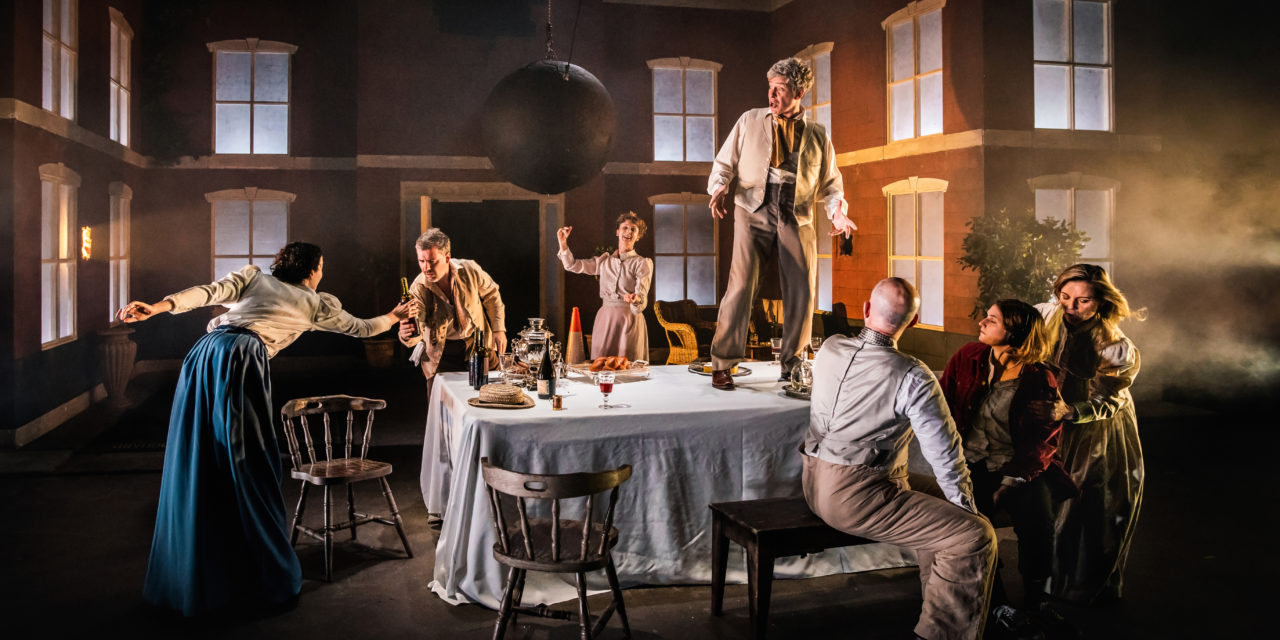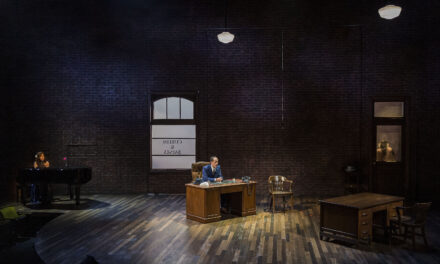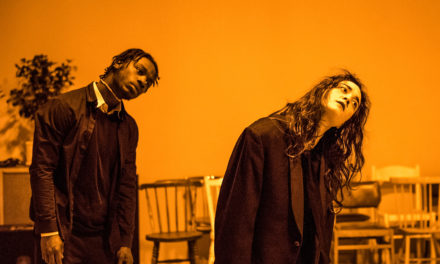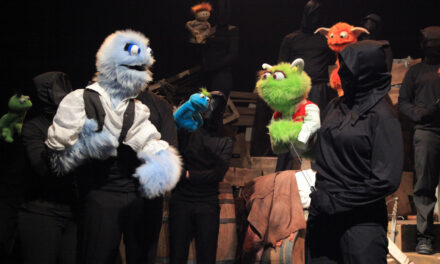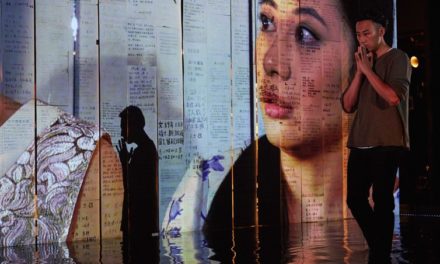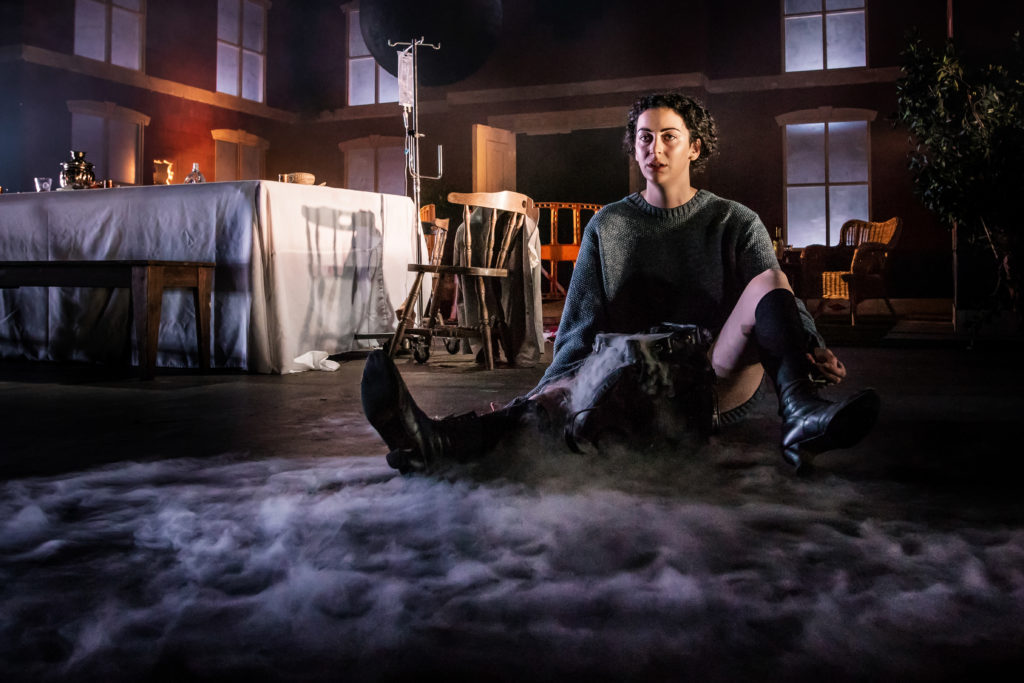
Photo Credit: Adam Trigg
Also known as Platonov or the Play Without A Title, Chekhov’s first playtext, written when he was 18 and never published during his lifetime, is a complex prototype version of all of his four most famous plays. It is a play with some production history in the English-speaking world (sometimes in Michael Frayn’s adaptation as Wild Honey), though not one that has any particularly memorable precursors in recent years. It is a problem play, often chosen by adaptors and directors for its problem-solving potential.
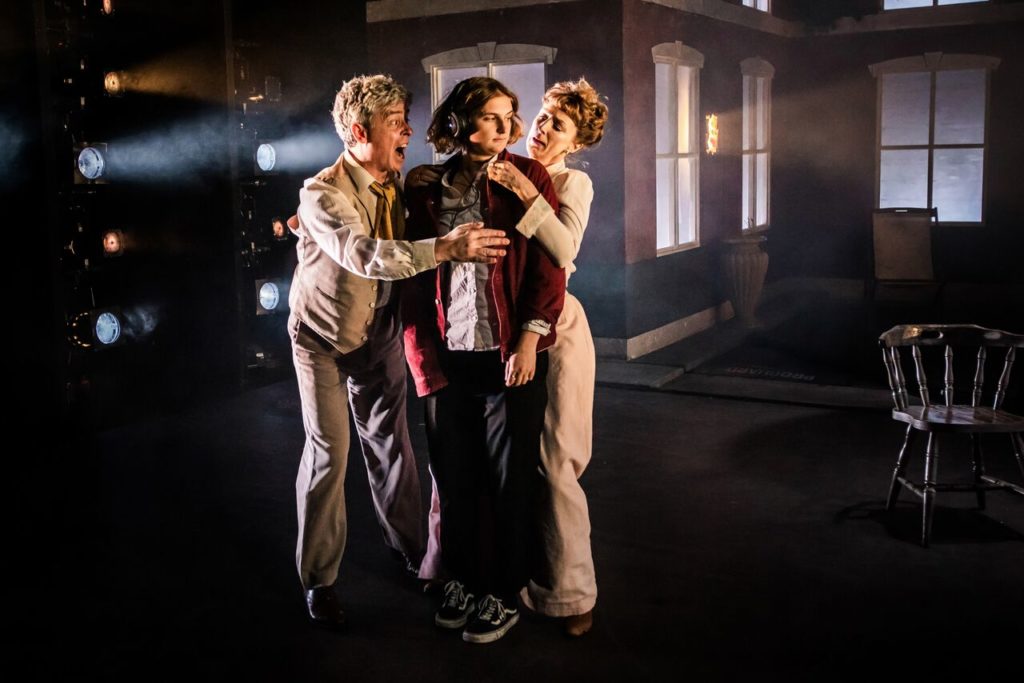
Dead Centre’s version is different. It is smartly named Chekhov’s First Play, and the textual authorship credit is apportioned between Chekhov and the directors Kidd and Moukarzel, making it clear this is no one’s vanity project. Neither is this an act of directorial assertion of authorship over the original text, or a clumsy suggestion of an adaptation. Instead one could qualify it as a three-way conversation with the original–a collaboration of sorts, an ensemble riff on beginnings.
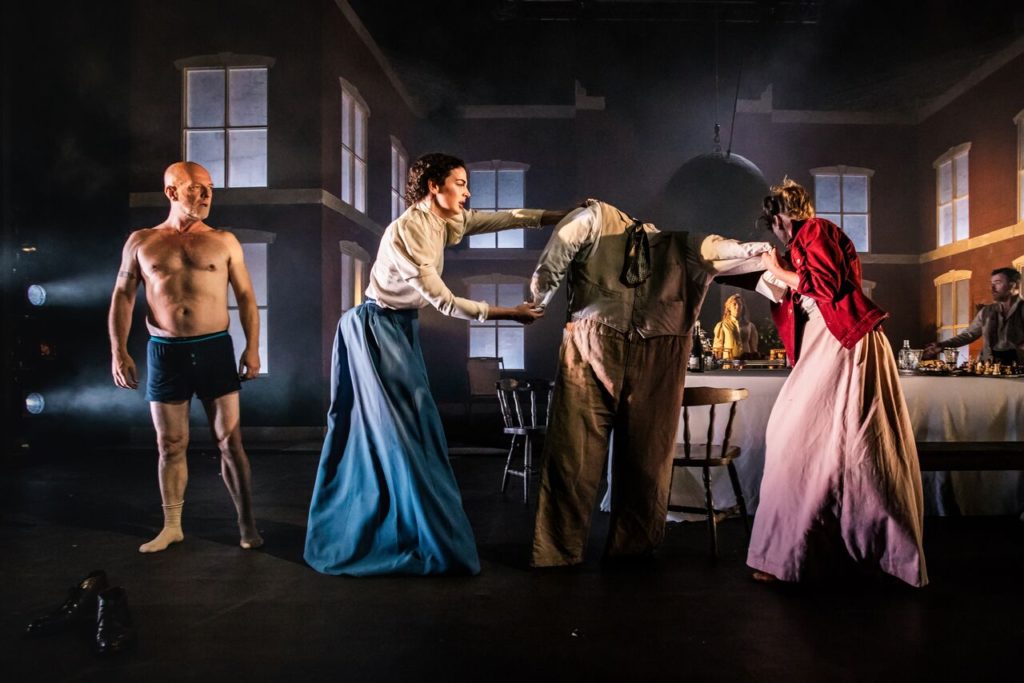
Photo Credit: Adam Trigg
The play opens with a direct address from director Bush Moukarzel standing on stage and speaking through a microphone that feeds into the headphones provided at each seat. Worried that we won’t understand Chekhov’s youthful ramblings, now additionally removed from us by history and geography, the director will give us a helpful DVD-style running commentary.
“For those who are used to having a voice in their head, this is like having two voices in your head.”
Game on–the audience is immediately up for it.
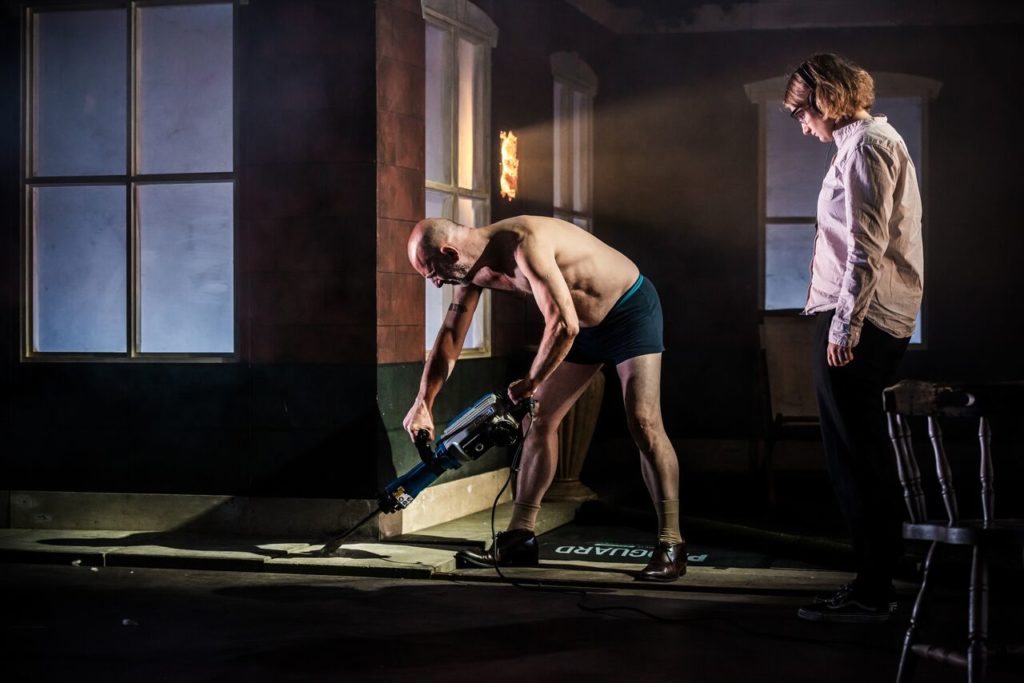
Photo Credit: Adam Trigg
Moukarzel informs us of the finer details of the plot, subtext, cuts he has made, casting, even some inter-personal gossip regarding his company. Property and greed are foregrounded as the main theme of Chekhov’s play, and later we will be offered ways of reading these themes in relation to the times we live in and present-day Ireland, the home of Dead Centre as a company.
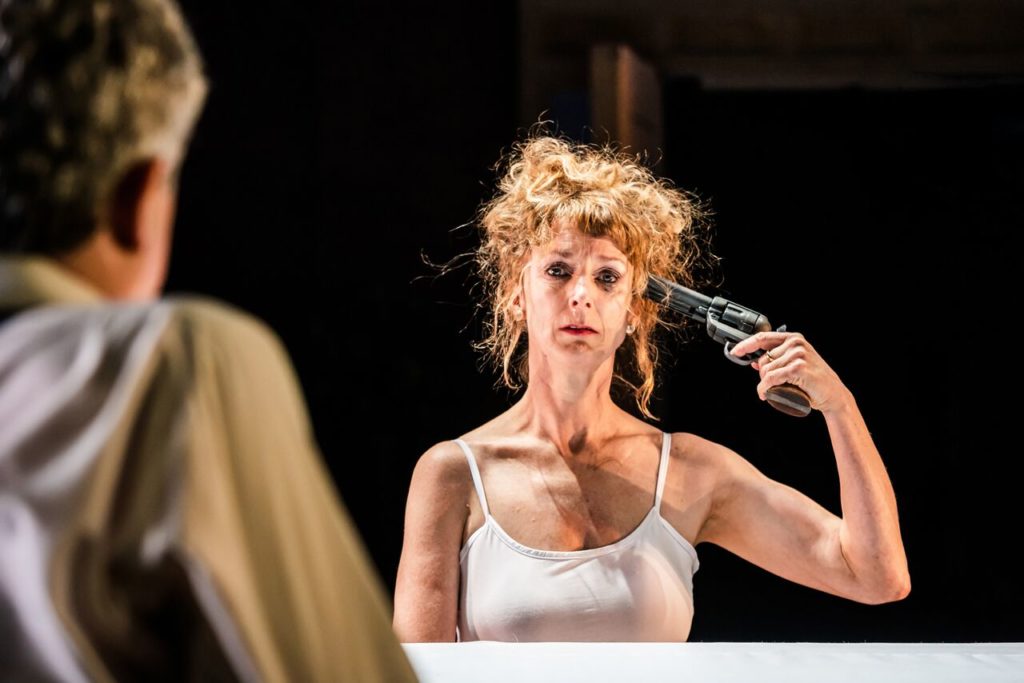
Photo Credit: Adam Trigg
The Irish connection seems important to note here on a number of levels. Moukarzel speaks with an English accent, however, he has made Ireland his base, and the same is the case with his directorial partner Ben Kidd with whom he co-founded Dead Centre in 2012. Their early piece, Lippy (2013), was an understated tribute to Beckett, displaying a strong commitment to a fusion of the verbal, the visual and conceptual in their engagement with stagecraft–an approach still underlying the company’s work.
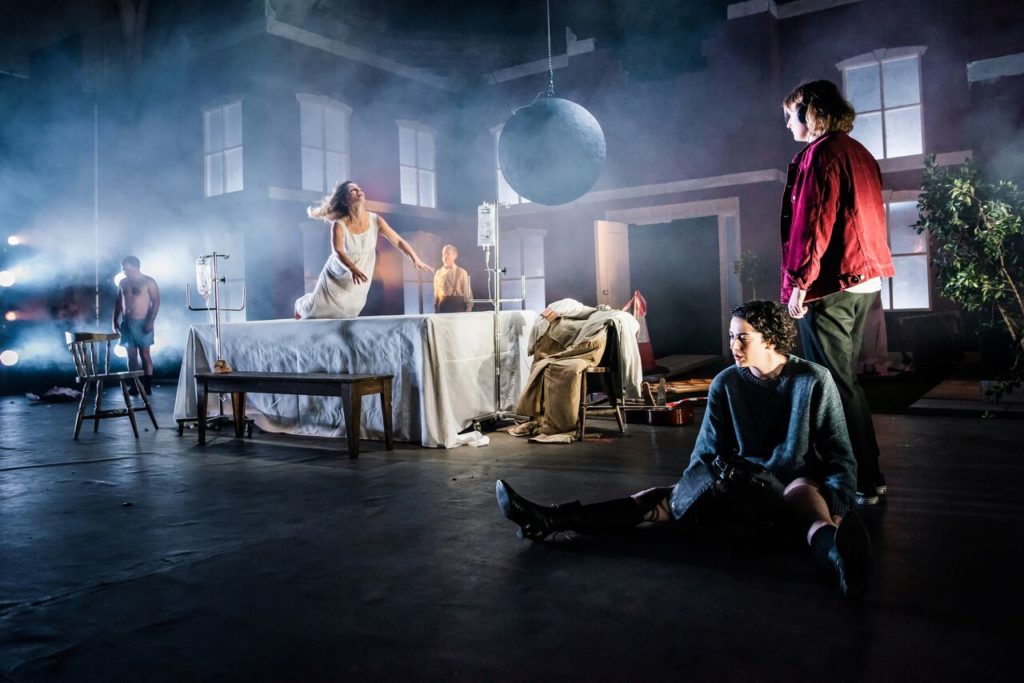
Photo Credit: Adam Trigg
On this occasion too, every aspect of the design is meticulously thought-through in relation to the central concept–the idea that ultimately less is more. And this idea is taken to extremes–silence-noise, presence-absence, possession-dispossession, comedy-tragedy, simplicity-complexity, life-death. Somewhere along the line, in this process of calibration, poignant moments of beauty and insight, elegantly shine through.
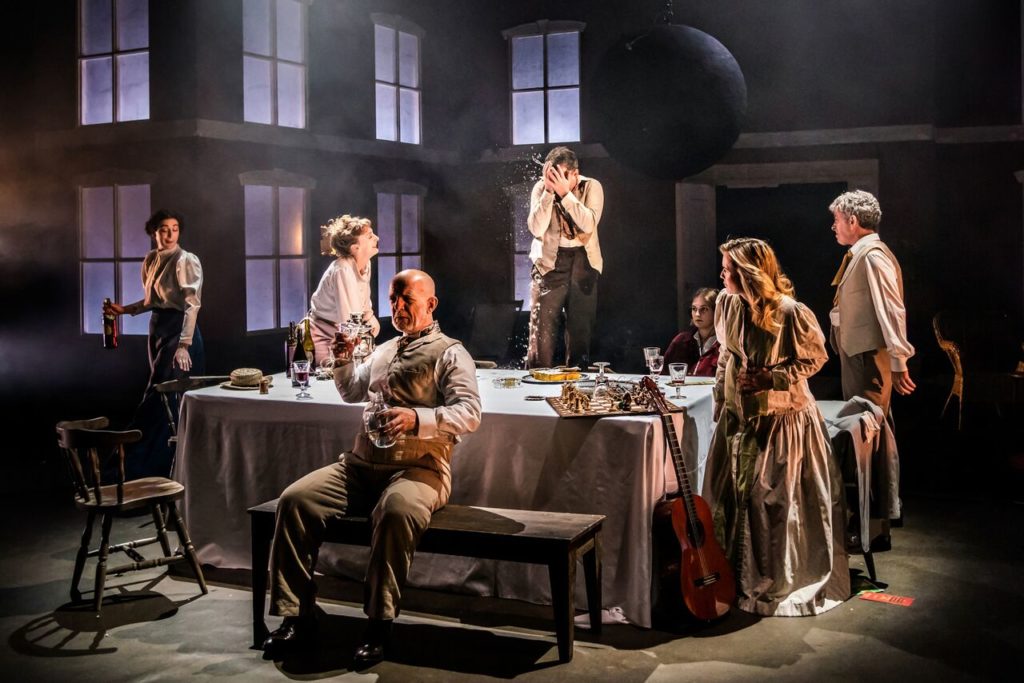
Photo Credit: Adam Trigg
It is an extraordinarily rich and layered piece which requires more than one viewing to properly appreciate its facets. It’s as though, in condemning greed, Kidd and Moukarzel’s work creates a sense of aesthetic insatiety itself.
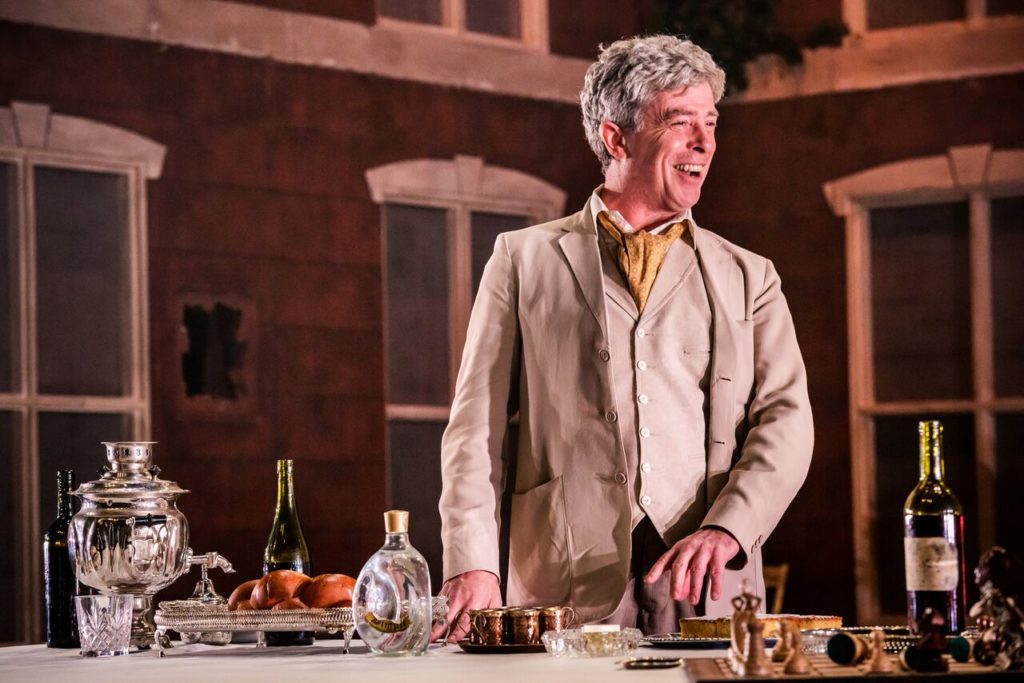
Photo Credit: Adam Trigg
Describing the work’s various moments of poetry and wit, therefore, does not do it justice, as the piece is primarily designed to be experienced. But I will say this–it is Chekhov like you have never seen it in the English-speaking world before. Totally true to its source, totally authentic in its execution. Although at times Chekhov’s First Play may resemble the regietheater of the German tradition, it is, in fact, an entirely autonomous achievement, whose aesthetic completely clearly emerges from its own deliberations.
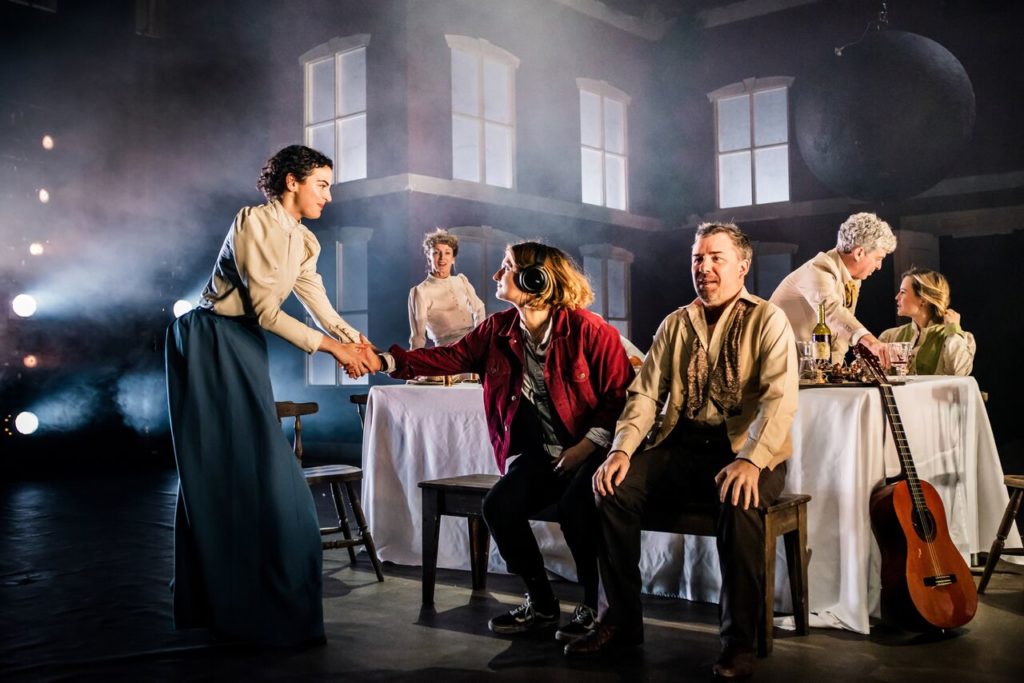
Photo Credit: Adam Trigg
This is where my review, like most others, has to stop short of revealing the central dramaturgical decision the work is based on. However, for the sake of posterity, I will add a spoilery post-scriptum–only for those who have already seen the show or are not in a position to ever see it again.
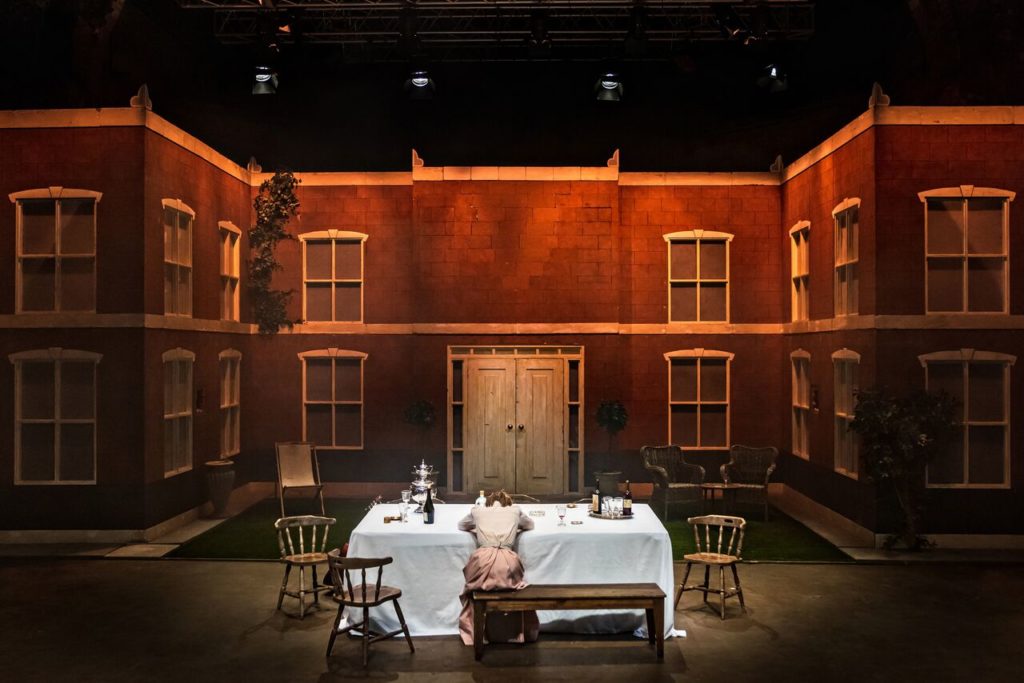
Photo Credit: Adam Trigg
What I have described above regarding the director’s DVD commentary to the piece turns out to be only a smart overture to the piece. Most of the first act of Chekhov’s Platonov serves to set up the mysterious title character’s arrival. Everyone’s third-person account of Platonov adds to this sense of anticipation–and this, the directors seem to have decided, is the play’s only most interesting feature.
Halfway through Dead Centre’s version, Moukarzel reminds us of his own (and indeed Chekhov’s) authorial ambitions for new forms of theatre and new ways of connecting to audiences; at this point, the conceit that has been painstakingly established is smashed with a burning cannonball flying through the set. A light shines on an audience member, who rises from his seat, a hypnotic score drowns out Moukarzel’s voice and from this point on we are sucked into a dreamlike state in which we witness our representative (the randomly chosen audience member) walk and dance and play their way through the piece, the only competence for their actions seemingly drawn from the director’s voice that must still be coming through their headphones.
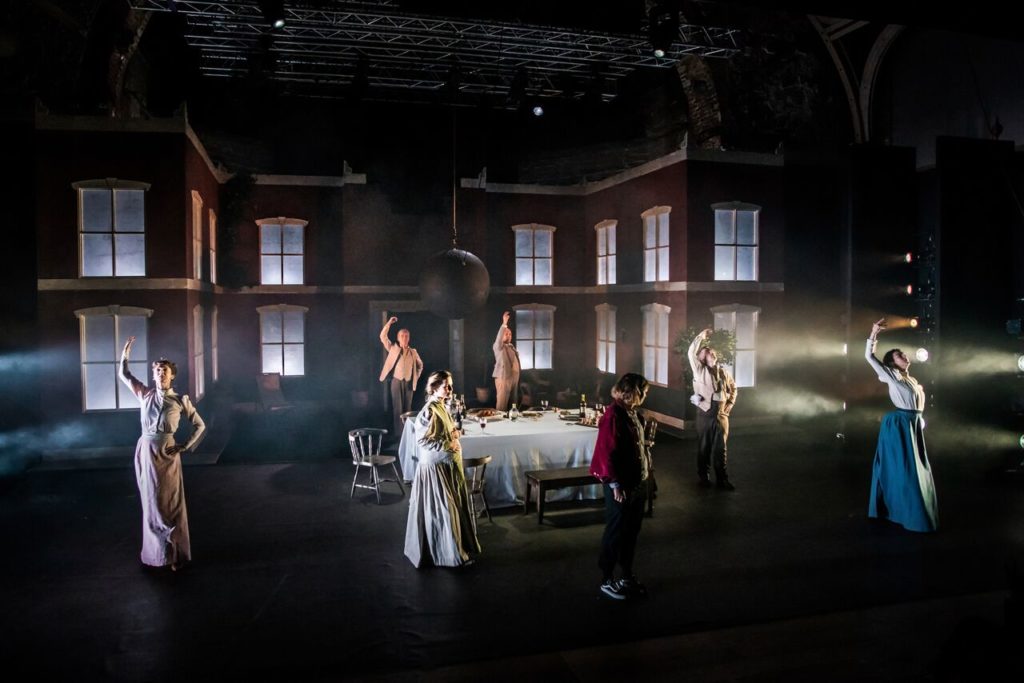
Photo Credit: Adam Trigg
The effect is a strange combination of reality and construct, the kind Chekhov must indeed have been aiming for but never thought possible with the available technology of his age. Platonov’s expositional absence is fully justified by this surprising entrance from the end of the auditorium elided into oblivion by the proverbial fourth wall. As we reach the end, in which the ensemble has reached the Russian roulette moment, Moukarzel speaks to us again. There is that famous quotation of Chekhov’s he is yet to finish–that if you see a gun at the opening of act one, by the end of the play it must be fired. But wait for this: all of Chekhov’s plays except the last one, Moukarzel informs us, have a gun in them:
“He wrote away the gun–his characters needed to learn to do something worse than dying.”
More a philosophical treatise than a straightforward theatre production, Kidd and Moukarzel’s fun-filled creation is both a contribution to the glittering annals of Chekohvian production histories and to the proliferating genre of immersive performance, but above all a key benchmark for any aspiring theatre-maker to see and think about.
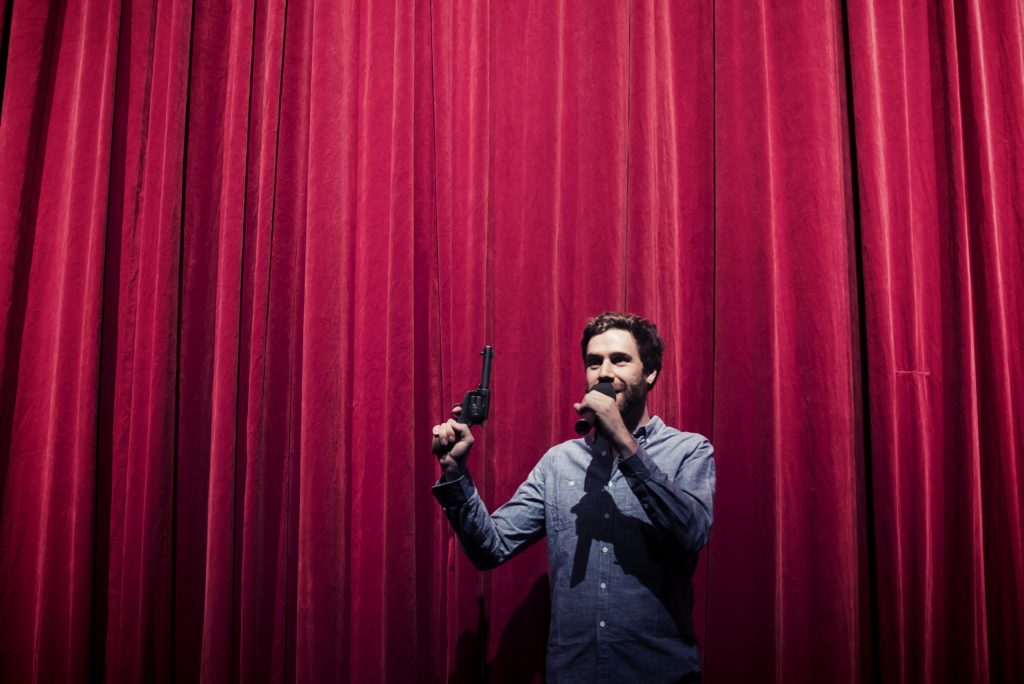
Photo credit: Jose Miguel Jimenez
Chekhov’s First Play
Battersea Arts Centre
Dates: October 31 – November 10
Text by: Anton Chekhov, Ben Kidd, Bush Moukarzel
Cast: Andrew Bennett, Tara Egan-Langley, Clara Simpson, Dylan Tighe, Breffni Holahan, Liam Carney
Set Design: Andrew Clancy
Effects and onstage design: Grace O’Hara
Costumes: Saileog O’Halloran
Light: Stephen Dodd
Sound Design: Jimmy Eddie and Kevin Gleeson
Choreography: Liv O’Donoghue
Direction: Ben Kidd and Bush Moukarzel
Producer: Aisling Ormonde
This post was written by the author in their personal capacity.The opinions expressed in this article are the author’s own and do not reflect the view of The Theatre Times, their staff or collaborators.
This post was written by Duška Radosavljević.
The views expressed here belong to the author and do not necessarily reflect our views and opinions.

